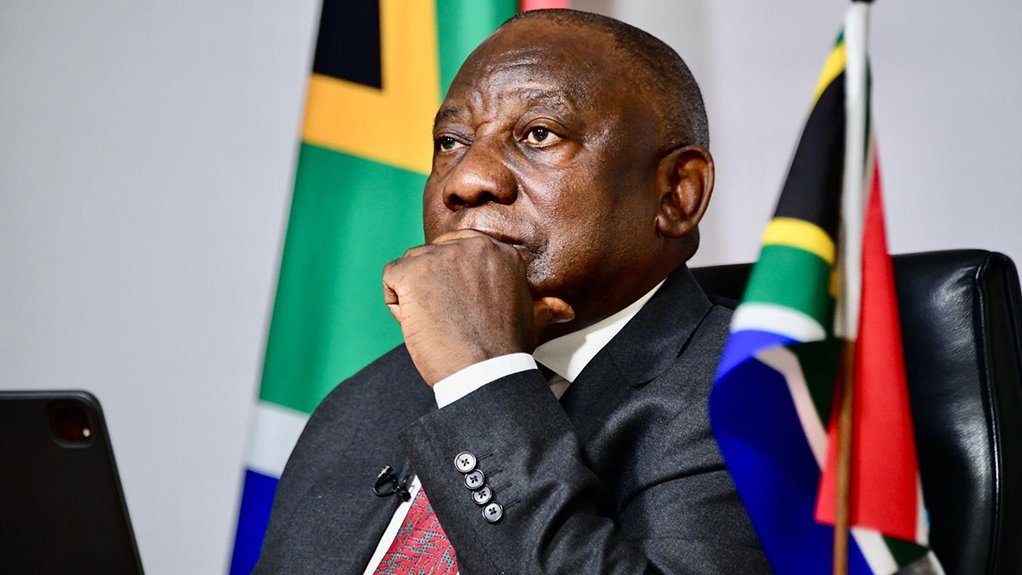Business and political parties have expressed disappointment with President Cyril Ramphosa’s announcement that he will, on Wednesday, sign into law the controversial National Health Insurance (NHI) Bill.
On Monday, Ramaphosa announced that he would publicly sign the Bill, which government hoped to use to achieve universal coverage for health services and, through this, overcome socioeconomic imbalances and past inequities.
Business Unity South Africa (Busa) said it was deeply concerned by the announcement, given the Bill’s many “substantive and procedural constitutional flaws”.
“We fully support the objective of universal health coverage, however, the NHI Bill in its current form is unworkable, unaffordable, and not in line with the Constitution,” said Busa CEO Cas Coovadia.
Busa believes that the legislation, in its current form, is “unimplementable and damaging” to the country’s healthcare sector, to the economy more broadly and to investor confidence.
“What is especially troubling is that the President is proceeding with the Bill despite extensive constructive inputs made by a wide range of stakeholders, including doctors and healthcare professionals, civil society, public sector unions, academics and business,” Coovadia said.
He explained that the consequence was that this version of the Bill would “hamper, rather than promote”, access to quality healthcare for all citizens.
He said Busa would pay close attention to the President’s announcement on Wednesday, and consider its options.
“Our subsequent actions will be guided by our belief that it is essential that we get the NHI right through all means still at our disposal, including appropriate legal interventions, so that the legislation that is finally implemented is in the best interest of our country, and all her people, for generations to come,” said Coovadia.
The South African Health Professionals Collaboration (SAHPC), also expressed its disappointment and concern following the announcement.
The SAHPC has made many submissions and had engagement in the NHI parliamentary process, in December, and has urged the President to refer the Bill back to Parliament on the grounds that it is unconstitutional and not in the best interest of patients and citizens. SAHPC said its input and insights were ignored.
SAPHC also believes its members’ concerns and recommendations throughout the parliamentary process were systematically ignored, raising serious questions about the fairness and effectiveness of the democratic process.
SAHPC members highlighted that they had consistently advocated for policies that prioritised the wellbeing of patients and ensured the sustainability of the country’s healthcare system.
The SAHPC said its members’ disappointment stemmed not only from the disregard for their expertise but also from the potential consequences the “unworkable” Bill may inflict on the healthcare landscape.
"Our members have made submissions at every stage of the legislative process, dating back to the release of the Green Paper in 2011. It is disheartening to see our efforts to contribute to a more robust, workable and patient-centric healthcare system being ignored. Where we are now is unprecedented, and we believe that the NHI, in its current form will reverse, rather than progress, equitable, quality healthcare in South Africa. We have no doubt that the NHI Bill will be challenged in the courts, and we are currently exploring all our options in this regard,” said SAHPC spokesperson Dr. Simon Strachan.
Meanwhile, ActionSA said it was disappointed that Ramaphosa had ignored the plea to avoid signing the Bill into law, in order to “avoid State capture 2.0”.
ActionSA Team Fix South Africa member Dr Kgosi Letlape said that while the NHI was well-intentioned to address healthcare inequality in South Africa, in its current form, it would open the health system to “corruption” as was seen during the Covid-19 pandemic when billions were lost through personal protective equipment and related corruption.
Letlape highlighted that the NHI proposal was “ill-conceived” and was adamant it would not address the shortcomings of the healthcare system in South Africa but present itself as a third tier in addition to the public and private healthcare.
“This will open up a loophole to budgetary irregularities that will enable corruption and collapse the healthcare system even further,” he added.
He noted the State had “consistently proven unable” to manage money or complex systems, as witnessed at Eskom, Transnet and South African Social Security Agency, saying the creation of another “healthcare behemoth” will do little to address healthcare but instead open up the industry to State capture and abuse.
Letlape said the greatest problem in the country’s healthcare system was not funding, but rather money lost through corruption and mismanagement.
Democratic Alliance leader John Steenhuisen said the Bill presented an “existential risk” to South Africa’s public and private healthcare systems and that it would impose an “unbearable” new tax burden on citizens.
EMAIL THIS ARTICLE SAVE THIS ARTICLE ARTICLE ENQUIRY
To subscribe email subscriptions@creamermedia.co.za or click here
To advertise email advertising@creamermedia.co.za or click here











